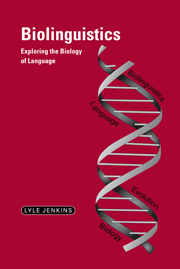1 - The unification problem
Published online by Cambridge University Press: 23 November 2009
Summary
Chomsky has commented as follows on the futility of attempting “the study of everything”:
In this connection, it is perhaps worthwhile to recall some further truisms; in rational inquiry, in the natural sciences or elsewhere, there is no such subject as “the study of everything. ”Thus it is no part of physics to determine exactly how a particular body moves under the influence of every particle or force in the universe, with possible human intervention, and so on. This is not a topic. Rather, in rational inquiry we idealize to selected domains in such a way (we hope) as to permit us to discover crucial features of the world.
(Chomsky, 1992:102)The physicist David Ruelle, one of the founders of the field of nonlinear dynamics and chaos theory, writes in a similar vein: “Typically, if you are a physicist, you will not try to understand everything at the same time. Rather, you will look at different pieces of reality one by one. You will idealize a given piece of reality, and try to describe it by a mathematical theory” (Ruelle, 1991:11).
In biolinguistics, one such “piece of reality” that one might seek to describe is the relations and interpretations that hold between full phrases like fones and “silent subjects,” as in this example described by Chomsky:
To illustrate in a slightly more subtle case, consider the sentence “Jones was too angry to run the meeting. ”Who is understood to be running the meeting? […]
- Type
- Chapter
- Information
- BiolinguisticsExploring the Biology of Language, pp. 15 - 56Publisher: Cambridge University PressPrint publication year: 2000



